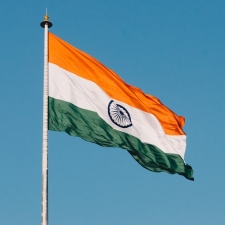Following recent decisions by the Goods and Services Tax (GST) Council, India is planning to apply a hefty tax to online gaming firms. The news comes after the 50th meet in New Dehli, in the form of an announcement that online gaming will essentially be treated like gambling: the same as horse racing and casinos.
The levy will be 28 percent of an online game’s full value.
Playing games, racing horses…?
The decision is sure to hit mobile the hardest; after all, mobile is the dominant gaming platform in India, with social casino and hypercasual games being especially popular – and successful in terms of revenue. In fact, India saw a 32 percent rise in hypercasual installs in 2022.
Of course, this isn’t India’s sole anti-gaming action in recent times; only last month, Indian minister of state for electronics and information technology Rajeev Chandrasekhar revealed that the country may soon prohibit three types of mobile game.
Now, regarding the new levy, the Council has decided that there should be no distinction made between “a game of skill and a game of chance” – a much more black and white, oversimplified view than the nuances around loot boxes, for example.
“The decision of the GST council to impose a 28 percent tax will have a significant impact on the online gaming industry, which unfortunately includes the Esports community. While we understand that the government needs to impose such measures on casinos, horse racing, and gambling, the higher tax rate is not justified for the competitive gaming community,” said Qlan co-founder and CEO Sagar Nair.
Alpha Zegus founder and director Rohit Agarwal added: “Esports do not only have a ‘win or lose’ situation based on luck but has a very big element of skill that determines the outcome of the game. This is not what I expected, and our fight to separate esports from other labels still continues.”
Recent predictions suggested that the Indian mobile gaming market would reach an $8.6 billion valuation by the end of 2027, but whether the same momentum can be continued under the new levy looks less likely.

